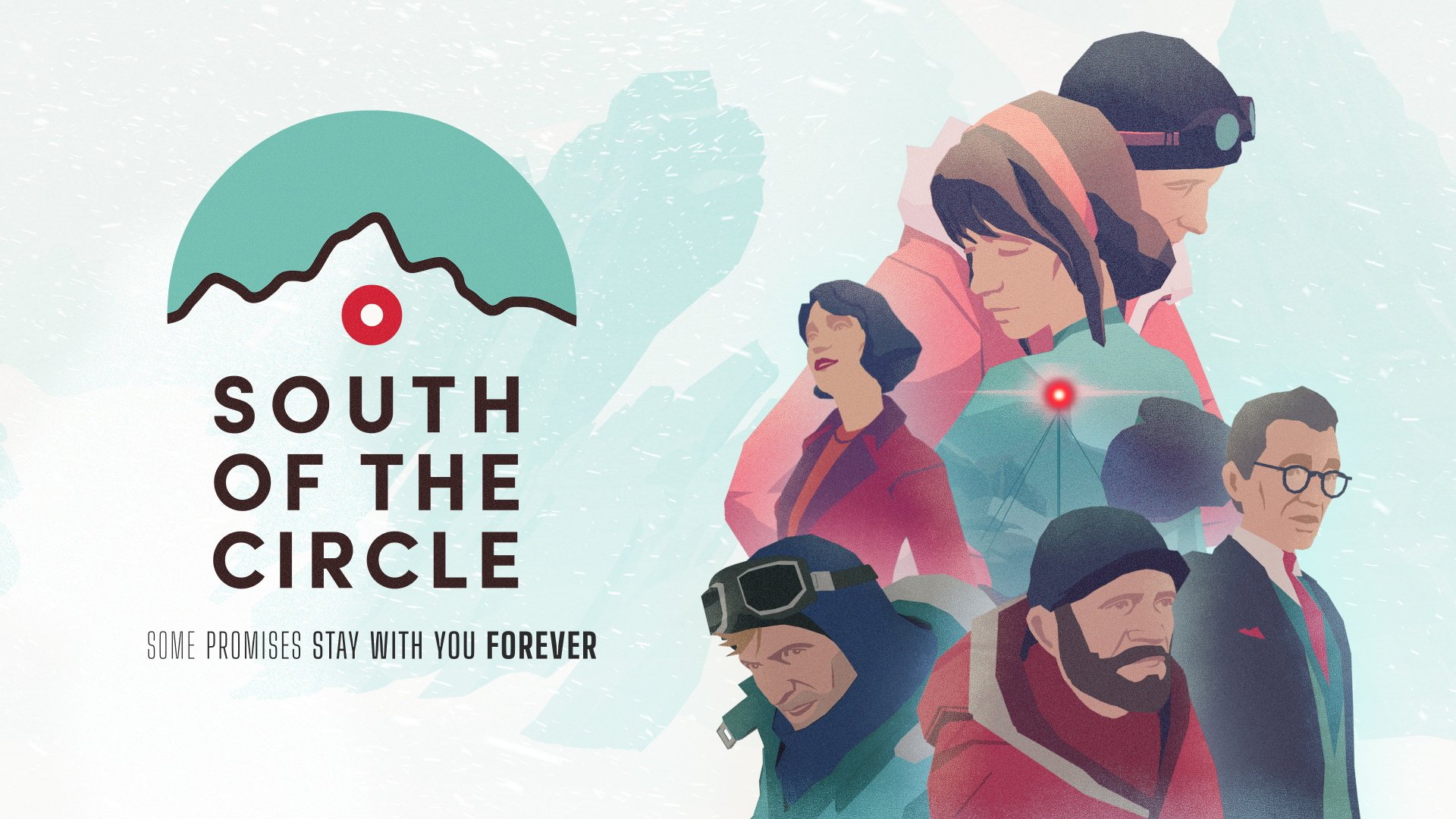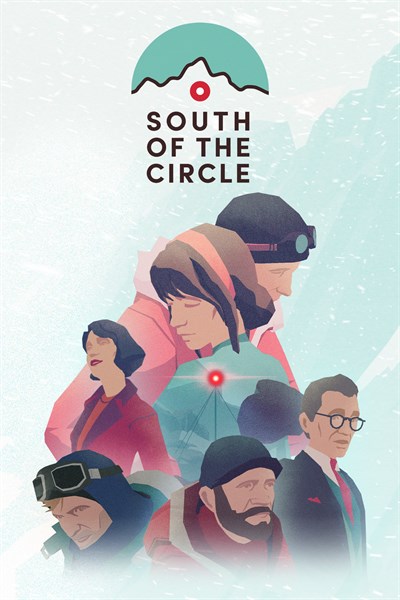
South of the Circle tells a cinematic story of survival, hope, and love. A story about those beautiful moments in life we have that are worth keeping, and worth making big promises. But we also deal with the big question — how power and politics affect people and how they can lead to disaster? And it couldn’t be made without one, a particular plane crash in Antarctica during the Cold War.

I was fascinated by the surreal beauty of Antarctica, particularly in the 60s, because of the low tech that was out there at the time. They were still hunting seals with wooden rifles, they didn’t have communication. It was a fascinating time, such as the time of the Cold War. A family friend worked in Antarctica back then and survived a plane crash, just like Peter, a Cambridge academic and South of the Circle main character. Our family friend also helped to establish the Antarctic Treaty, a peace accord keeping the world safe from nuclear war, and the tension in the game hinges on this. While Peter is forced to head into a blizzard in search of survival, he is remembering all of his past. Meeting the wonderful Clara, a fellow academic, and experiencing a burgeoning, romantic and intellectual love affair that brings him to the point where we see him. How will he reconcile feelings with an ambitious career? And if he will be able to keep his promises?

In South of the Circle, we explored what happens to a person when they are taken away from all the structures they’re around in everyday life. Who are we when we‘re separated from all the political and social constructs? It was a great way to explore someone’s mind because when you’re in a setting like that what else do you have? And the aforementioned surreal beauty? Even now, retired, our family friend is still drawn back to Antarctica. I was even lucky enough to travel with him on a research trip for this game, to explore its magical pull. We all have that image of the perfect iceberg floating in Antarctica, but when we got there we discovered there are things like sunken volcanic craters, which have black ash up the side, hidden from boats, so you can sail right into the center of them. Even on a gray day, when there is no color anywhere, which is interesting in itself like it’s black and white. The sounds were really inspiring, you can hear things from miles away. Once, right in front of us, down in the bay, a piece of ice down the size of a building broke off, fell into the water, and created a sound, unlike anything I heard before. It was like thunder going off in four different places at once and echoing around and the sound stayed there for like a minute afterward, and then it was completely silent again.

We wanted to tell the story about power and the individual and how these big powers can affect our lives. A lot has happened since 1960s socially and this game explores the struggles that Clara in particular came up against trying to be an academic in that time. She is part of the second wave of feminism and has ambitions to be a successful academic which are stopped in many ways by the power structures that are around her. But the more we worked on Peter’s and Clara’s story, the more it came apparent this was the story of the individual and the choices we make. We realized the most interesting things and most important things in our lives are all those small emotional decisions and the promises we make in life. And we really do want you to experience this as if you were there. We’ve worked with some of the best actors in the world including Gwilym Lee from “Bohemian Rhapsody,” Olivia Vinall from “The Woman in White,” and Anton Lesser from “Game of Thrones” to bring the characters real authenticity, and developed a way you talk to them in the game with the flow and emotion of real conversation.

I really hope you choose to experience South of the Circle for yourself now that it’s available on the Xbox Store for Xbox One and Xbox Series X|S.

South of the Circle
11 bit studios
$12.99
$11.69
Masterfully executed cinematic feel
Created by BAFTA winners State of Play, the game’s beautiful aesthetic and nuanced writing underlines its sweeping cinematic scope, further enhanced by actors drawn from “Bohemian Rhapsody” (Gwilym Lee), “The Woman in White” (Olivia Vinall), “The Crown” (Richard Goulding), “Game of Thrones” (Anton Lesser), “Chernobyl” (Adrian Rawlins) and “Downton Abbey” (Michael Fox).



